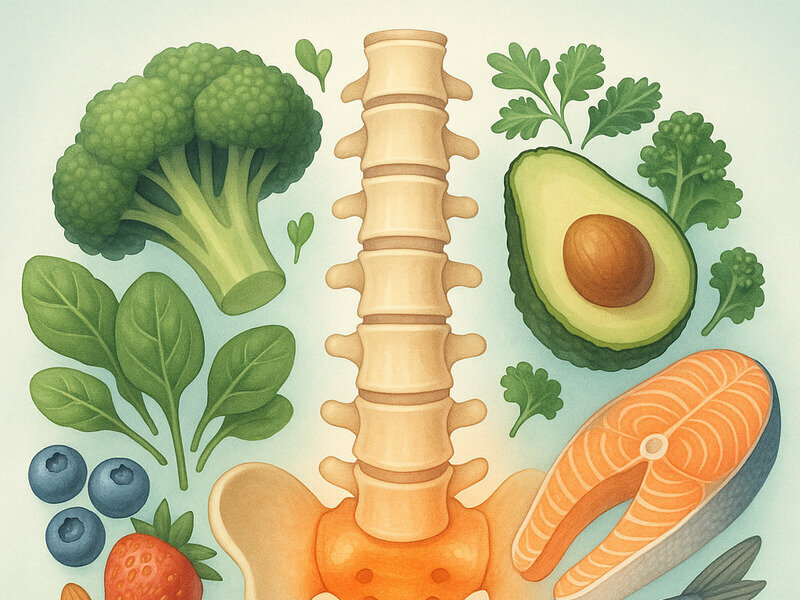
Ankylosing spondylitis (AS) is a chronic inflammatory disease primarily affecting the spine and sacroiliac joints, leading to pain and stiffness. As a form of arthritis, it can significantly impact quality of life. While medication and physical therapy are common treatments, there is growing interest in the role of diet in managing AS symptoms. This article explores whether dietary changes can reduce inflammation associated with ankylosing spondylitis, examining current research, potential dietary strategies, and practical guidance for those seeking relief through nutrition.
Understanding Ankylosing Spondylitis and Inflammation
Ankylosing spondylitis is characterized by inflammation that can cause new bone formation, leading to fusion of the vertebrae. The exact cause of AS is unknown, but it is believed to involve genetic and environmental factors. Inflammation plays a central role in the progression of the disease, making it a key target for management strategies.
The Role of Inflammation in AS
Inflammation in AS is primarily driven by immune system dysfunction. The body's immune response mistakenly targets its own tissues, causing chronic inflammation. This can result in pain, stiffness, and reduced mobility. Managing inflammation is crucial for alleviating symptoms and slowing disease progression.
Dietary Factors and Inflammation
Research suggests that certain dietary patterns can influence inflammation levels in the body. Diets rich in anti-inflammatory foods may help reduce systemic inflammation, potentially benefiting individuals with inflammatory conditions like AS.
Anti-Inflammatory Diets
Anti-inflammatory diets typically emphasize whole foods, healthy fats, and a variety of fruits and vegetables. Key components often include:
- Omega-3 fatty acids found in fish, flaxseeds, and walnuts.
- Antioxidant-rich fruits and vegetables such as berries, leafy greens, and cruciferous vegetables.
- Whole grains like oats, brown rice, and quinoa.
- Healthy fats from sources like olive oil and avocados.
- Spices with anti-inflammatory properties such as turmeric and ginger.
Research on Diet and AS
A study published in the journal Rheumatology International found that a Mediterranean diet, known for its anti-inflammatory properties, was associated with reduced disease activity in patients with AS. Participants following this diet reported lower levels of pain and improved physical function compared to those on a standard diet.
Another study in the Journal of Clinical Rheumatology highlighted the potential benefits of a low-starch diet for AS patients. The study observed that reducing starch intake led to decreased inflammation markers and improved clinical outcomes.
Practical Dietary Strategies for Managing AS
While individual responses to dietary changes can vary, several strategies may help manage inflammation in AS:
Incorporating Anti-Inflammatory Foods
To harness the benefits of an anti-inflammatory diet, consider incorporating the following foods into your daily meals:
- Fatty Fish: Aim for at least two servings per week of salmon, mackerel, or sardines.
- Fruits and Vegetables: Include a variety of colorful produce to ensure a range of antioxidants.
- Nuts and Seeds: Snack on almonds, walnuts, or chia seeds for healthy fats and fiber.
- Whole Grains: Replace refined grains with whole grain options like brown rice or quinoa.
- Herbs and Spices: Use turmeric, ginger, and garlic to add flavor and anti-inflammatory benefits.
Avoiding Pro-Inflammatory Foods
Certain foods may exacerbate inflammation and should be limited or avoided:
- Processed Foods: Reduce intake of processed snacks, fast food, and sugary beverages.
- Refined Carbohydrates: Limit white bread, pastries, and other refined grain products.
- Saturated Fats: Minimize consumption of red meat and full-fat dairy products.
- Trans Fats: Avoid partially hydrogenated oils found in some margarines and packaged snacks.
Conclusion: Key Takeaways
The relationship between diet and inflammation in ankylosing spondylitis is complex but promising. While more research is needed to fully understand the impact of specific dietary patterns on AS, current evidence suggests that an anti-inflammatory diet may help manage symptoms and improve quality of life. By incorporating anti-inflammatory foods and avoiding those that promote inflammation, individuals with AS can take proactive steps toward better health outcomes.
Ultimately, dietary changes should be considered as part of a comprehensive management plan for ankylosing spondylitis. Consulting with healthcare professionals or registered dietitians can provide personalized guidance tailored to individual needs and preferences.


